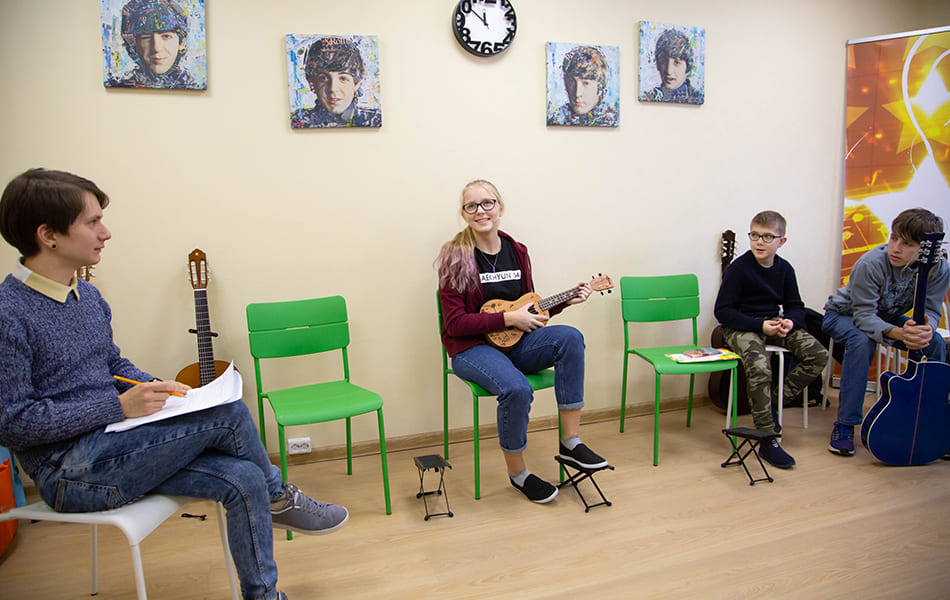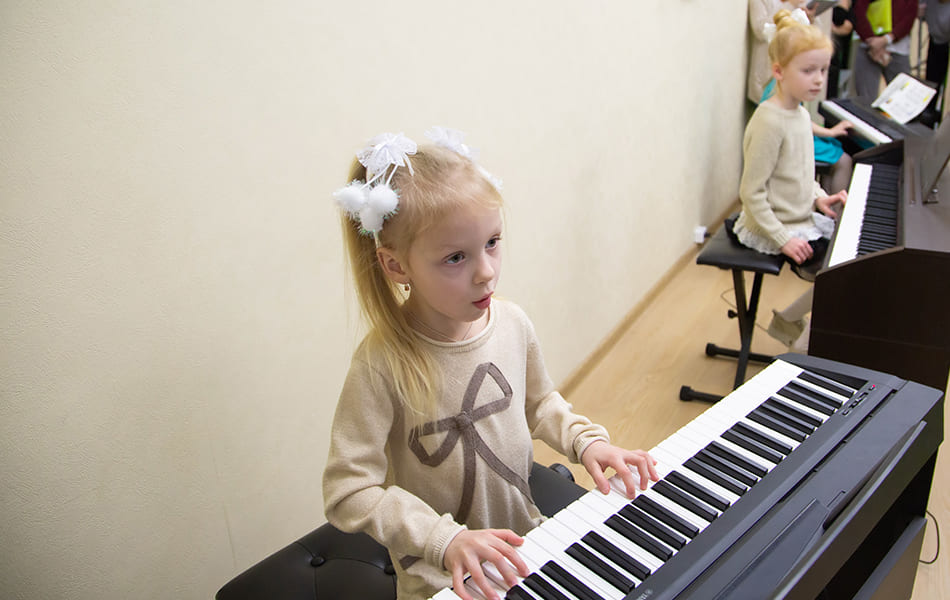Music lessons are extremely important for the child’s body and the complex development of the personality. Singing, playing the flute, piano or any other musical instrument – all this not only develops musical taste, but also improves fine motor skills, attention and other important skills.
Now more and more parents want to send their child to a music school. Often they themselves are far from being musicians, they are poorly versed in the issues of such education, but they understand that musical education brings up taste and other important personality traits in a person.
It turns out that most parents vaguely imagine where to start. What kind of music lessons for children are needed? What musical instrument to choose? Is there any preliminary preparation required? There are really a lot of questions, so let’s look at this problem in more detail.

Where to begin?
Teaching children music should start at an early age. A hackneyed phrase, but this does not negate its relevance. So where is the best place to start?
To begin with, let’s imagine that music is the language you want to teach your child. What will be the first step? Of course, creating the right language environment. The effectiveness of this method can be seen in those people who learn a foreign language among its native speakers, i.e. when a person is in conditional England, he will learn English much faster, because all people speak elementary English.
So it is with music – the more auditory musical experience, the easier it will be for the child in further music lessons. Language is learned by children from birth, they hear how their parents speak, they accumulate passive and active vocabulary.
Accordingly, parents must create the necessary musical environment so that rhythmic and intonational forms and sounds become familiar to the child. You can start from birth, listening to good and positive music, which has a positive effect on the nervous system of the mother and her baby. Own singing, listening to songs, playing musical instruments (if you, of course, have such skills) – all this has a positive effect on the child.
You can use baby music games for toddlers. Recitatives-improvisations with toys are especially good. You can create an impromptu “communication” of toys with each other under the motive of 3-4 sounds. An additional plus if your house has a synthesizer or even a real piano. The same recitatives can be played on the keys in different registers.
Remember that in no case should you impose music lessons. Joint singing of songs or chants to the accompaniment of a musical instrument should last for 1-2 minutes, but several times a day. One lesson should not last too long, otherwise the child will quickly lose interest in them, and he will perceive them as some kind of forced occupation.
When can I start teaching music to preschool children with a teacher?
Let’s say you actively study with your child at home, sing songs with him, play an instrument, etc. But this is only the initial stage, which is a good base, but still cannot be a full-fledged training. This requires the complex work of a music teacher who knows his business and understands exactly how to work with children.
The beginning of music lessons with young children is always individual. Sometimes we hear that some children start studying with a teacher as early as 3-4 years old, but this is rather an exception. As a rule, the parents of such children are musicians themselves, or they are far ahead of their age in terms of musical development.
So at what age do they take to a music school? As a rule, from 6-7 years old, but sometimes earlier – at 5 years old. It all depends on the characteristics of the child. In particular, can he be diligent and hold attention for at least 15 minutes? If so, then he is ready to go. In most music schools, the load is gradual, i.e. first start with small-time classes, then increase them to 30 minutes. Such an entry into the educational process can take from 1 to 3 months.
In our School, teachers teach children early musical development, which allows them to join the wonderful world of music. This is a good start for a child who wants to learn how to play a musical instrument or go to vocal courses in the future. Our standard schedule is 2 times a week, which is sufficient for general musical development. At the same time, parents can bring their children to us more often if they want a more in-depth immersion in the world of music.

Does it make sense to study with a teacher for children aged 2-5 years?
We have already established that the average age when parents send their children to music school is 6-7 years old. But experience shows that children who started school earlier have a certain advantage over older children.
For children aged 2 to 5 years, the following qualities are characteristic:
- Emotional and more direct perception of the world around.
- Rapid assimilation of new movements and any information.
- Some absent-mindedness, quick switching of attention, i.e. They find it difficult to concentrate on one activity.
- Young children a priori cannot plan their day, and therefore live according to the principle of “here and now”.
This list includes both qualities that will be useful in teaching, and those that can interfere with classes with a teacher. But still, we recommend that the child be sent to a music school as early as possible, because music will be perceived by him as something ordinary, at the subconscious level (as in the case of learning his native language).
